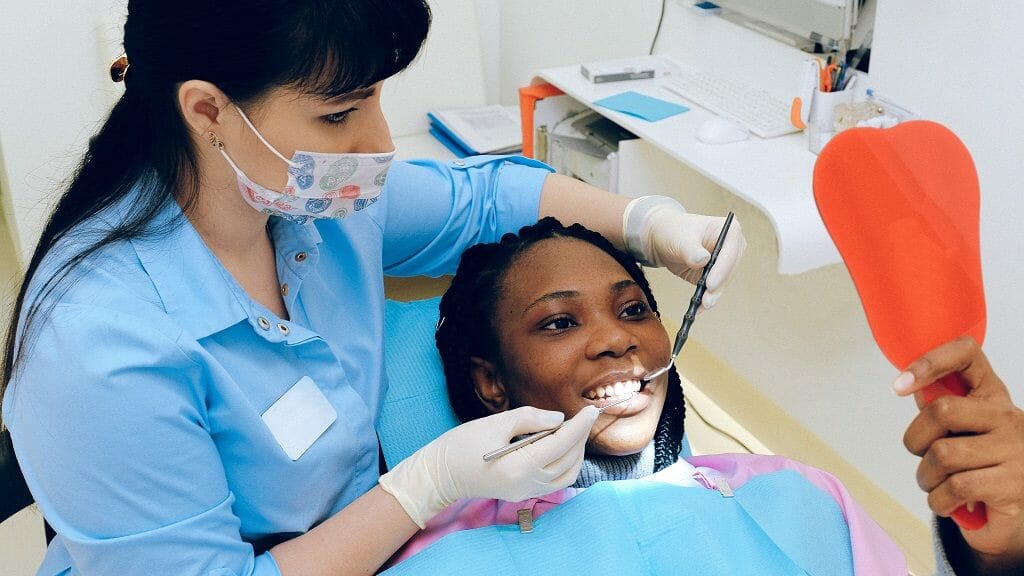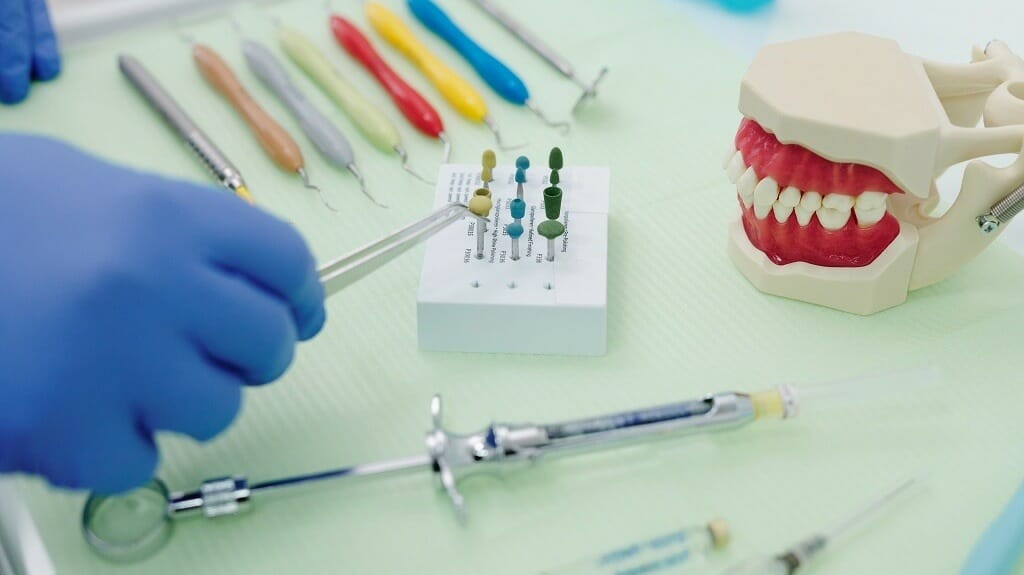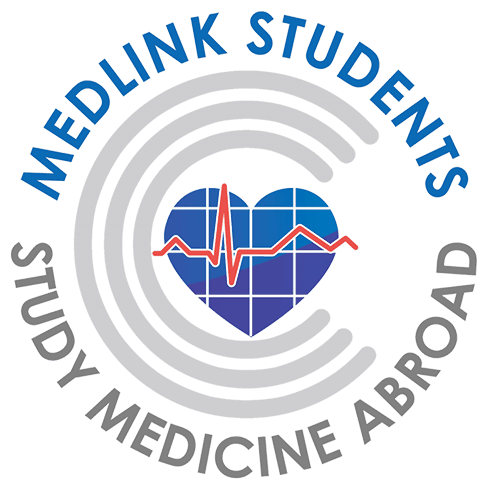What Are the Different Types of Dentists & Dental Specialties?

“You’re never fully dressed without a smile.”
Martin Charnin
As a prospective or current dental student, you probably wonder what the different types of dentists and dental specialities are. We have created this detailed article to help you understand the differences between dental specialities and choose your future career path.
Become the person who gives people the best gift - a perfect smile!
Table of Contents
- 1 What exactly is a dental speciality?
- 2 Is dental speciality a must?
- 3 Why should you pursue a dental speciality?
- 4 How do you apply for dental speciality training in the UK if you have graduated from a European university with a degree in dentistry?
- 5 How long are dental specialities?
- 6 How many different dental specialities are there?
- 6.1 A full list of specialities in dentistry recognised by the GDC
- 6.1.1 Dental and Maxillofacial Radiology
- 6.1.2 Dental Public Health
- 6.1.3 Endodontics
- 6.1.4 Oral and Maxillofacial Pathology
- 6.1.5 Restorative Dentistry
- 6.1.6 Oral Medicine
- 6.1.7 Oral Microbiology
- 6.1.8 Oral Surgery
- 6.1.9 Orthodontics
- 6.1.10 Paediatric Dentistry
- 6.1.11 Periodontics
- 6.1.12 Prosthodontics
- 6.1.13 Special Care Dentistry
- 6.1 A full list of specialities in dentistry recognised by the GDC
What exactly is a dental speciality?
After graduating from dental school in Europe, you will earn a DMD (Doctor of Medicine in Dentistry/Doctor of Dental Medicine) or a DDS (Doctor of Dental Surgery). Simply said, there is no difference between DMD and DDS. Both degrees have the same curriculum.
But what happens when you have a DMD or its equivalent DDS?
You will face the choice of either starting to practice professionally or going after a dental speciality.
All dentists can be divided into general dentists and dental specialists.
The dental speciality is advanced graduate training in dental medicine.
There are some cases where patients need special care provided by a dental specialist in a particular field. Such situations when a dental specialist is required might be:
- Facial trauma, including jaw fractures
- Removal of tumours of the mouth, jaws
- Teeth straightening
Is dental speciality a must?
As we clarified in the previous section, you can either be a general dentistry practitioner or undergo advanced training and become a specialist. In other words, holders of DMD degrees are not required to choose a speciality.
Why should you pursue a dental speciality?
There is a high demand for qualified dental specialists in the UK and the US. And the numbers are expected to grow in the following years. Besides providing a much-needed dental career and helping people, an excellent stimulator for prospective dental specialists is the salary.
According to the NHS report for 2021, the annual salaries for dentists are as follows:
- Dentist in foundation training: £33,720
- Dental core trainees: between £39,467 and £50,017
- Dental specialty trainees: between £50,017 and £53,077
- Salaried dentist employed by the NHS: between £43,019 and £92,013
- Consultants/ Dental Specialists: between £84,559 and £114,003
How do you apply for dental speciality training in the UK if you have graduated from a European university with a degree in dentistry?
From 1st January 2021 until 1st January 2023, GDC (General Dental Council) will recognise EEA-qualified dentists “under a near-automatic system”. This means that if you apply for GDC registration during this period, you will not sit for any exams. As of today that is still the case.
This doesn’t mean that your degree will not be recognised!
Just the process of registration will change. For further information, you can check Brexit - information for dental professionals.
We expect that dental doctors will be required to sit the ORE. To be eligible to sit the exam, you must meet the clinical experience and English language requirements.
Clinical experience requirements are:
- A minimum of 1600 hours of clinical experience in which you have individually treated patients in the dental chair. These hours can be completed during your dental degree, post-qualification experience or a combination of the two. Some European medical schools offer 6 year dental programmes where the last year is an internship.
After passing the ORE exam, you can apply for full registration using the GDC register. You will be able to work in the NHS after doing either Dental Foundation training (DFT) or through PLVE - Performers List Validation Experience (an equivalence of DFT).
After you have full GDC registration and a minimum of 2 years of postgraduate experience, you can apply for a speciality training programme.
Successful completion of the speciality training programme leads to a CCST (Certificate of Completion of Specialty Training), and you will be eligible to enter the GDC Specialist List.
NOTE: You are not required to join a specialist list to practice a particular speciality in the UK. However, you may only use the title 'specialist' if you are on that list.
How long are dental specialities?
The duration of dental specialisation depends on the field you want to specialise in and the programme you apply for. Usually, it’s a minimum of 2 to 3 years.


How many different dental specialities are there?
There are 13 dental specialities in the UK recognised by the General Dental Council. To be called a dental specialist, you must undergo advanced graduate training in one of the specialities listed below.
A full list of specialities in dentistry recognised by the GDC
Dental and Maxillofacial Radiology
The term “maxillofacial” comes from the Latin word “maxillo”, which means “jawbone”. As a result, “maxillofacial” refers to the jawbones and the face. An oral and maxillofacial radiologist is a specialist who takes and interprets x-ray pictures as well as any other data obtained in the diagnosis and management of severe diseases and conditions of the oral and maxillofacial area (face, mouth, and jaws).
The average duration of speciality training in Dental and Maxillofacial Radiology is 4 years.
Dental Public Health
The primary work of dental public health specialists is to promote better oral health and prevent dental diseases in communities. They don’t focus on treating individuals. They provide information about oral hygiene and effective methods to enhance population dental health through diverse programs.
The duration of this training is around 4 years and depends on your previous education.
Endodontics
The term endodontics comes from the Greek “endo”, which means “inside”, and “odont”, which means “tooth”. Endodontists study and treat the dental pulp. They perform procedures like:
- Root canal treatment
- Apicoectomy
- Pulp Capping
- Pulpal Regeneration
The training period is 3 years or 4500 hours.
Oral and Maxillofacial Pathology
Pathology is a medical discipline that studies the nature and causes of diseases. Therefore, Oral and Maxillofacial Pathologists focus their work on diagnosing the causes and consequences of various oral conditions.
Usually, they work at laboratories or in the hospital’s histopathology department. They analyse mouth biopsies. The samples for analysis are given by ear, nose, and throat specialists, as well as dentists and oral and maxillofacial surgeons.
The training takes around 5 years to complete.
Restorative Dentistry
The research, diagnosis, and integrated care of illnesses of the oral cavity, teeth, and supporting structures are all part of restorative dentistry. Restorative dentistry comprises the dental professions of endodontics, periodontics, and prosthodontics. Its basis is built on how they interact with patients needing complex care. Some of the treatments provided by specialists in restorative dentistry are:
- Oral rehabilitation of patients with maxillofacial trauma
- Root canal therapy
- Periodontal treatment
Speciality training in Restorative Dentistry is approximately 5 years. This may seem a little too long compared to the above dental specialities, but this is due to the complex restorative treatments needed.
Oral Medicine
Oral medicine is a dental speciality associated with the oral health care of patients suffering from chronic or recurring illnesses of the oral and maxillofacial area (jawbones and face). Oral medicine specialists treat patients with symptoms related to the mouth which do not directly relate to teeth.
The average training period is five years.
Oral Microbiology
Oral Microbiologists examine microbial communities, bacteria, and fungi. In other words, this dental specialty is the study of microorganisms of the oral cavity. It is especially suitable for dental doctors who enjoy combining clinical work with academic activities.
The minimum duration of speciality training in Oral Microbiology is 5 years.
Oral Surgery
Oral surgeons specialise in surgeries of the mouth, teeth, gums, neck and jaws. Some of the key responsibilities include:
- Examination of patients
- Diagnosis
- Determine the need for surgery
- Correct abnormalities induced by injury or disease
- Restore normal function of the maxillofacial area
The average training period is 4 years.
Orthodontics
Orthodontists take care of:
- Diagnosis malpositioned teeth
- Correction of malpositioned teeth
- Correction of jaws
- Correction of misaligned bite patterns such as overbite and underbites
Specialists in Orthodontics create a corrective treatment plan (fitting braces and retainers) based on the patient's specific needs.
A dental speciality in Orthodontics takes around 3 years to complete.
Paediatric Dentistry
Paediatric Dentists provide care for children with dental problems such as knocked-out teeth, fractured or broken teeth, and any misalignments due to injuries to the mouth, face, and jaws. They also perform surgeries on teeth, bone, and soft tissues of the oral cavity. Overall, paediatric dental specialists assist children in attaining and maintaining good dental health.
The average training period is 3 years.
Periodontics
A periodontist is a dentist who specialises in periodontal disease prevention, diagnosis, treatment, and the insertion of dental implants. Periodontists are regularly called upon to treat more challenging periodontal cases, such as severe gum disease. They also receive training in aesthetic periodontal procedures.
The training period in Periodontics is 3 years or 4500 hours.
Prosthodontics
A prosthodontist is a dentist who specialises in replacing missing teeth and related mouth or jaw structures using bridges, dentures, prostheses, implants or crowns.
The duration of this speciality training is also around 3 years.
Special Care Dentistry
Special Care Dentists provide oral help to patients with other medical, physical, or psychiatric problems, such as:
- Autism
- Cerebral Palsy
- Schizophrenia
- Geriatric patients
The specialists in this field may work in hospitals, visit patients' homes, nursing homes, or provide oral health care to homeless people.
Dental speciality training in Special Care Dentistry takes approximately 3 years to complete.
You can find individual curriculums for all different types of dentists and dental specialities programmes on the GDC’s Standards for Specialty Education page.
Leave a Reply

About Medlink Students
Leading international recruitment company for medical students in Europe. British Council Certified Agents. 10+ years of experience and more than 10,000 students advised.








